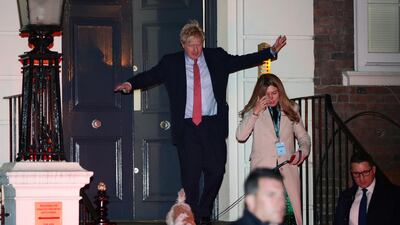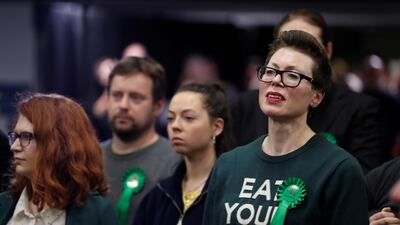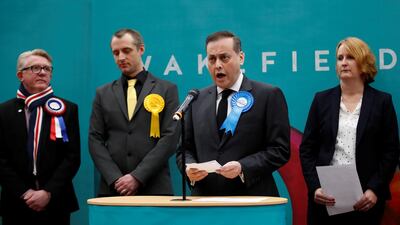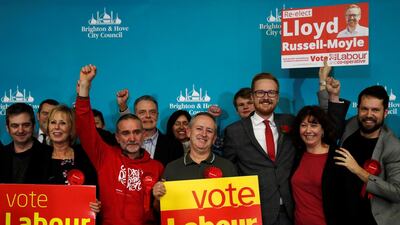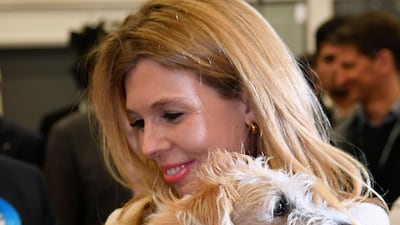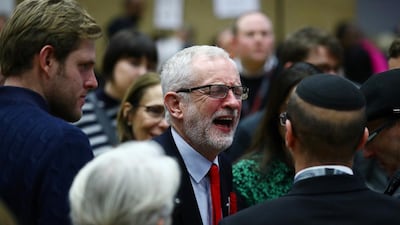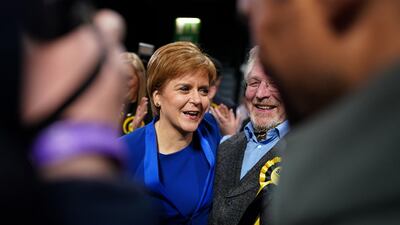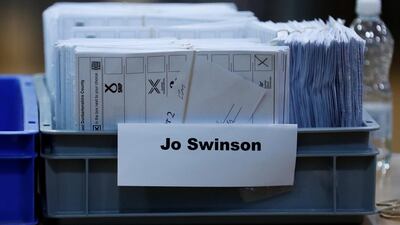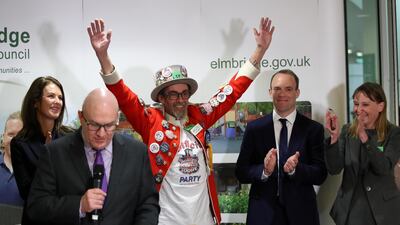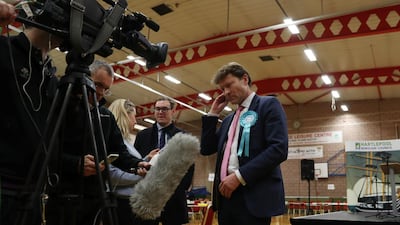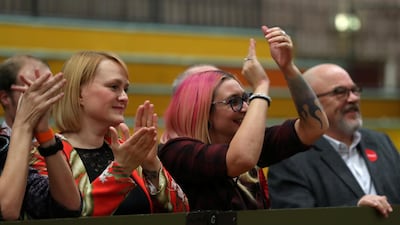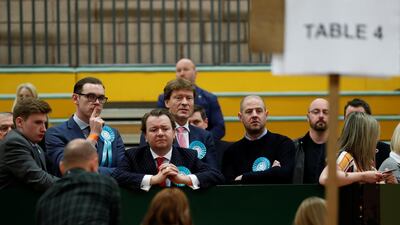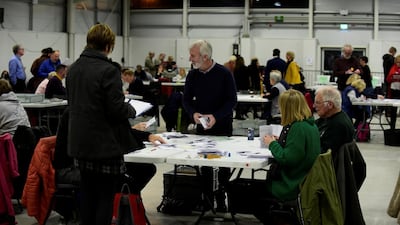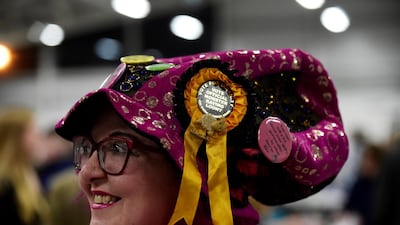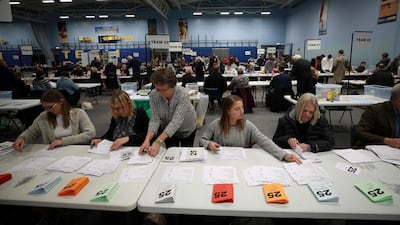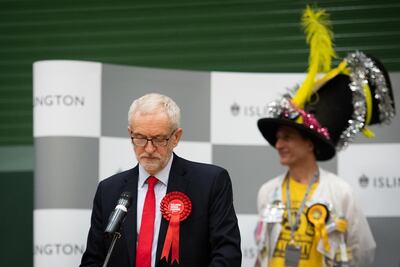Prime Minister Boris Johnson's Conservative Party has won a majority in the UK elections, allowing him to drive through his vision of Brexit.
Results from counting overnight showed the Tories had crossed the threshold of 326 of the 650 seats in the lower House of Commons, meaning they could not be beaten. Exit polls from Thursday's vote indicated they could win 368 seats.
Mr Johnson’s party saw its biggest win for a Conservative leader since Margaret Thatcher in 1987.
In a victory speech in central London, Mr Johnson promised to put the National Health Service at the forefront of his campaign, pledging to hire 50,000 new nurses and open 40 new hospitals across Britain.
He told voters who had switched from other parties to the Conservatives that he was “humbled” by their support, before adding “I or we will never take your support for granted”.
He said he would work “night and day” to repay the trust of voters.
Mr Johnson said he was determined to put an end to the “arguing about arguing” of Parliament about Brexit and “get Brexit done” by January 31.
US President Donald Trump congratulated his British counterpart for the election win. He said it paved the way for the two countries to strike a post-Brexit trade deal.
The opposition Labour Party is predicted to fall to its worst performance since 1935 with left-wing leader Jeremy Corbyn announcing he would not stand as leader at the next election.
“Corbyn was a disaster on the doorstep. Everyone knew that he couldn’t lead the working class out of a paper bag,” Former Labour cabinet minister Alan Johnson told ITV.
But at least he won his seat, unlike Jo Swinson - the leader of the anti-Brexit Liberal Democrats - in a calamitous night for those who still harboured hopes of remaining in the European Union.
The City welcomed the news of a likely thumping victory for the Conservatives, with the pound surging two per cent against the dollar, in recognition that the result will end three years of deadlock in a divided parliament following the 2016 referendum.
The scale of the victory emerged during the morning as the Conservatives won series of seats in the north of England, including former mining towns, that had long been Labour strongholds.
Labour losers included the party's Brexit spokeswoman, Jenny Chapman, who lost her northeast seat of Darlington.
Mr Johnson entered the election without a majority, having just 298 Tory MPs after some quit the party, and he withdrew the whip from others when they rebelled over Brexit.
The vote, dubbed the Brexit election, was called by Mr Johnson after he failed to get his plan for leaving the EU through Parliament.
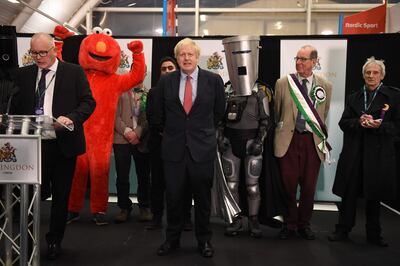
He campaigned on a slogan of “Get Brexit Done” which appears to have resonated with a public wearied by the slow progress of quitting the EU.
The predicted result would clear the way for Mr Johnson to take Britain out of the bloc by January 31, 2020.
“Getting Brexit done is the priority," said Priti Patel, the Home Secretary. "The deal is there, it’s good to go.”
The opposition Labour Party had promised another referendum on Brexit during a campaign focused on nationalising key industries and taxing the ultra-rich.
The Conservatives have been leading the polls since Mr Johnson called the election in October, more than two years ahead of schedule.
It followed a disciplined campaign with Mr Johnson making few of the gaffes that have dogged his political career.
John McDonnell, Labour’s finance spokesman, said that the result suggested by the exit polls would be “extremely disappointing” and that the campaign had been dominated by people’s desire to get Brexit “over and done with because they have had enough”.
“People were frustrated – they wanted Brexit out of the way,” Mr McDonnell told the BBC. “Brexit frustration has broken through.”
Labour candidates took to Twitter to express their dismay at the poll result.
"There are very few words for how heartbroken I am for the community I represent, who have been through enough," said Jess Phillips, who represented a seat in Birmingham.
The result saw Conservative candidates win seats in traditional working-class areas that have been loyal to Labour for decades.
The poll also suggests that the leading anti-Brexit party, the Liberal Democrats, will win only 13 seats. Its leader, Jo Swinson, was facing a fight to keep her seat in the face of a strong challenge from the Scottish National Party (SNP).
The SNP which supports a split from the UK, is set to perform strongly within, with a forecast 55 seats.
Scotland narrowly voted against independence in 2014 by 55 per cent to 45 per cent.
A senior minister, Michael Gove, said the strong showing for the SNP in Scotland did not mean that another referendum was inevitable.
The Brexit Party, led by Nigel Farage, was forecast not to win any seats after withdrawing many of its candidates to allow the pro-Brexit Conservatives a free run in some.
Mr Farage said that the election showed that the UK would get Brexit, but maybe not the right one.
